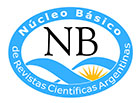Tlatelolco 1968 and other subaltern shouting from Latin American cinema
Keywords:
Testimony;Tlatelolco; CinemaAbstract
In 1968, students from the Centro Universitario de Estu- dios Cinematográficos (CUEC-UNAM) captured with their cameras the process of protests, between the firsts ma- nifestations in July and the October, 2 Tlatelolco massacre. Given the represions of Gustavo Díaz Ordaz government, the footage was hidden and finally edited between 1969 and 1970 to make the documentary El grito (Leobardo López Arretche).
This article discusses the presence of the testimony and the representation of masses in El grito following John Beverly ́s reflections about the genre. He has pointed out two key moments of Latin American testimonial literature: the emergence of the genre in the sixties still at the Revolu- tionary imaginary, and its place during the complaints on violations of human rights after the military goverments of the seventies. Drawing on Beverly ́s distinction for the lite- rature, this work focus on film, and also compares El grito with other testimonial latin american films of those years.
Downloads
References
Avilés Cavasola, Juncia (2007). “La respuesta está en el aire: sobre la resignificación de los helicópteros en El Grito, México 1968”, México D. F.: SUAC-UNAM, 25 al 27 de septiembre. Disponible en: http://coloquiocine.files.wordpress.com/2013/06/juncia-avilecc81s.pdf. Fecha de la última consulta: 28 de enero de 2014.
Ayala Blanco, Jorge (1974). La búsqueda del cine mexicano (1968-1972). México: UNAM.
Barnet, Miguel (1968) [1966]. Biografía de un cimarrón. Buenos Aires: Editorial Galerna.
Beverley, John (2004). Testimonio. On the Politics of Truth, Minneapolis-London: University of Minnesota Press.
De la Vega Alfaro, Eduardo (1999). “Notas sobre el movimiento estudiantil popular de 1968 en el cine mexicano”. En: Secuencias, N° 10: pp. 411-428.
Debroise, Olivier (ed.) (2006). La era de la discrepancia. Arte y cultura visual en México. 1968-1997. México: UNAM.
Fallaci, Oriana (1976). Nada y así sea. Barcelona-Madrid: Ed. Noguer.
Fornet, Jorge (2009). “La voz del otro: del testimonio a la nueva narrativa”. En: Revista Iberoamericana 20-2: pp. 297-319.
Gilman, Claudia (2003). Entre la pluma y el fusil. Debates y dilemas del escritor revolucionario en América Latina. Buenos Aires: Siglo XXI.
Menchú, Rigoberta (1983). Me llamo Rigoberta Menchú y así me nació la conciencia. México: Siglo XXI.
Mestman, Mariano (2013). “Las masas en la era del testimonio. Notas sobre el cine del 68 en América Latina”. En: Mestman, M. y Varela, M. Masas, pueblo y multitud en cine y televisión. Buenos Aires: Eudeba. Pp. 179-215.
Monsivais, Carlos (2008). El 68. La tradición de la resistencia. México: Ediciones Era.
Muñiz García, Elsa (2008). “El grito. Mexico 68 o los sonidos del silencio”. En: Alegatos N° 70: pp. 411-428.
Poniatowska, Elena (2000) [1971]. La noche de Tlatelolco. Testimonios de historia oral. México: Ediciones Era.
Rodríguez Cruz, Olga (2000). El 68 en el cine mexicano. Puebla (México): Universidad Iberoamericana.
Vázquez Mantecón, Álvaro (ed.) (2007) Memorial del 68. México: Turner-Centro Universitario Tlatelolco.
Viezzer, Moema (1978). “Si me permiten hablar...”. Testimonio de Domitila, una mujer de las minas de Bolivia. México: Siglo XXI.
Walsh, Rodolfo (1957). Operación Masacre. Buenos Aires: Sigla.
Downloads
Published
How to Cite
Issue
Section
License

This work is licensed under a Creative Commons Attribution-NonCommercial-ShareAlike 4.0 International License.
La revista Clepsidra. Revista Interdisciplinaria de Estudios sobre Memoria es una publicación en Acceso Abierto y no cobra dinero a los autores y autoras por publicar (APC) como tampoco a los lectores por acceder al contenido publicado. En este marco, la publicación utiliza las licencias Creative Commons, específicamente Atribución-NoComercial-CompartirIgual 4.0 Internacional (CC BY-NC-SA 4.0). Por esta razón, cuando un manuscrito es aprobado para la publicación, los autores y autoras retienen los derechos de autor sobre su trabajo, pero autorizan a copiar, distribuir, hacer obras derivadas del trabajo original, a condición de atribuir siempre la autoría del trabajo en la forma especificada por el autor o licenciante de la obra. Esta licencia no permite, sin embargo, utilizar la obra ni sus posibles trabajos derivados con fines comerciales.
Por su parte los autores y autoras conservan los derechos sobre el trabajo y garantizan el carácter de inédito y original. También, los autores y autoras ceden a Clepsidra… el derecho, no exclusivo, de publicarlo de manera electrónica. Por lo tanto, los autores y autoras podrán disponer de las versiones finales y difundirlas en repositorios institucionales, temáticos, páginas web personales o cualquier otro uso pertinente, siempre que se mencione la fuente original de publicación.













